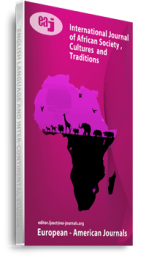Nigeria was artificially structured and named by the British. This nomenclatural coloration brought different ethnic nationalities together. These ethnic nationalities located in different parts of the country with distinct languages, history and cultural backgrounds and values, were made to coexist together under the same political unit. Little effort was made by the British to achieve political unity among these groups. With the first and second military coups in 1966, ethnicity became a major factor in Nigeria’s political lexicon. By 1967, Nigeria experienced a major conflict that almost dismembered the country. The war had serious economic consequences on Biafra as a result of the economic blockade and other stringent policies imposed on them by the Nigerian government. This paper therefore, interrogates issues emanating from the economic blocked and the challenges faced by Biafran citizens during this period. It examines survival strategies adopted by the Biafran government, Biafran citizens and efforts made by international humanitarian organisations to support the people. In the content analysis, this paper made use of both primary and secondary sources. The study identified both positive and negative survival efforts made by the people of Biafra.
Keywords: Biafra, Nigeria, War, economic challenges, survival in Biafra

